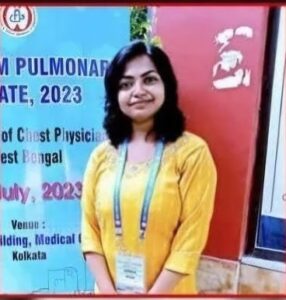The brutal rape and murder of a 31-year-old trainee doctor at RG Kar Medical College and Hospital in Kolkata has ignited a series of nationwide protests. This heinous crime, which involved the rape and torture of a young medical professional within the premises of a government hospital, has galvanized not only the medical community but also feminist groups and activists nationwide, giving calls for reforms and safety.

The tragedy has ignited a nationwide call for justice, demanding both immediate accountability for the perpetrators and comprehensive reforms to enhance the safety and security of women and medical professionals in India. The ensuing protests have highlighted deep-seated issues in India’s approach to both sexual violence and the protection of its healthcare workers, underscoring a broader societal crisis that has long remained unaddressed.
Details of the Tragic Incident in Kolkata
On August 9, 2024, the body of a 31-year-old post-graduate trainee doctor was discovered in a government hospital in Kolkata. The initial reports suggested suicide, but an autopsy revealed she had been raped and tortured before her death. The victim’s parents were misled by hospital authorities, who initially claimed the death was a suicide. The autopsy results, however, confirmed the violent nature of the crime, ending in the confirmation of her brutal rape, with surefire suggestions of possible gang rape.
The report of the victim’s, Moumita Debnath’s, body, found in a seminar hall in the hospital after overnight duty, suggested death by smothering, and throttling, along with aberrations all over the body and face. Despite signs of struggle, the report suggested that the accused got a certain advantage due to the victim being in deep sleep at the time of the attack.
The murder has shocked the nation and prompted widespread outrage. On August 13, 2024, a major rally took place in Kolkata, where activists and doctors gathered to demand justice and accountability. The demonstrations quickly spread to other major cities, including Delhi, where “Reclaim the Night” rallies were held to demand better safety measures and accountability.
Protests and Demonstrations
The protests have been both peaceful and violent. In Kolkata, peaceful protests included candlelight vigils and marches, while some groups resorted to vandalizing parts of RG Kar Medical College. The emergency ward, nursing station, and outpatient department of the hospital were damaged before police intervention.
The Federation of Resident Doctors’ Association (FORDA) initially called for a nationwide halt to elective hospital services, including outpatient departments and operating theaters. This action aimed to pressure the government into taking concrete steps to ensure medical professionals’ safety. However, FORDA suspended the strike after Health Minister Jagat Prakash Nadda promised to address their demands, including the ratification of the Central Protection Act.

Despite the suspension, protests have continued in various states, including Delhi, Chandigarh, Uttar Pradesh, Bihar, and Goa. Some medical federations, such as the Federation of All India Medical Associations (FAIMA) and the All India Institute of Medical Sciences (AIIMS), have maintained their strikes, demanding a central law to protect medical professionals from violence.
Legal Framework for Addressing Sexual Violence:
Despite the multiple legal frameworks in place to avoid instances of violence against women and to aid in lowering rape cases. They were made specifically stricter following a gang-rape case of a 22-year-old in 2012, a case that had human rights groups and locals calling out for reforms and protesting against the miserable situation of women in India.
-
Criminal Law (Amendment) Act, 2013:
- This Act was introduced following the 2012 Delhi gang rape case. It increased penalties for sexual violence, including rape, and defined new forms of sexual assault. The Act also established procedures for faster trials and victim protection.
-
Protection of Human Rights Act, 1993:
- Established the National Human Rights Commission (NHRC) to investigate human rights violations, including sexual violence. The NHRC plays a role in monitoring and ensuring compliance with human rights standards.
-
Central Protection Act (Proposed):
- Proposed in 2022, this Act aims to protect medical professionals from violence. It seeks to classify violence against doctors as a non-bailable offense, ensuring stricter penalties and better protection for healthcare workers.
-
Indian Penal Code (IPC) Sections:
- Sections 376 and 377 of the IPC deal with sexual offenses, including rape and unnatural offenses. These sections outline the legal definitions and penalties for such crimes.
Current Legal and Political Actions:
The Kolkata High Court has transferred the case to the Central Bureau of Investigation (CBI), which will conduct a comprehensive investigation. The court has directed the CBI to submit periodic status reports on the case. The transfer comes amid criticism of the local police and government for allegedly mishandling the case.
The investigation is expected to be completed within two months from the date of the FIR, which was filed on August 9, 2024. This timeline aligns with Indian law, which mandates that rape and gang rape cases should be resolved within two months of the complaint.
Political Reactions:
The case has also become a political issue. The Bharatiya Janata Party (BJP) has called for the dismissal of the West Bengal government, led by Mamata Banerjee’s All India Trinamool Congress (AITC). Opposition leader Rahul Gandhi has demanded justice for the victim and criticized the local administration’s response.
Broader Implications
The case highlights the ongoing issue of sexual violence in India, where

despite stricter laws, the incidence of such crimes remains high. According to 2022 statistics, an average of 90 rapes were reported daily. This case has prompted renewed calls for comprehensive legal reforms and better enforcement of existing laws.
The tragedy in Kolkata underscores the intersection of violence against women and attacks on medical professionals, reflecting broader societal issues. The case has led to calls for systemic change and greater accountability from both the government and healthcare institutions.
The Future of Security in India?
As the CBI takes over the investigation, the focus remains on ensuring justice for the victim and implementing long-term reforms to prevent similar incidents. The ongoing protests and public outcry reflect a deep frustration with the current state of safety and justice in India, emphasizing the need for systemic changes and stronger protective measures for women and medical professionals alike. The call from the protesting doctors suggests a threat of denying service if the lack of security persists in the workplace. Moumita’s death has brought on an alliance of multiple groups, calling out for strong reforms and a safer future.
Read More:
Alarming Reports of Rape and Violence Emerge as HRW and UN Condemn Sudan’s RSF
















